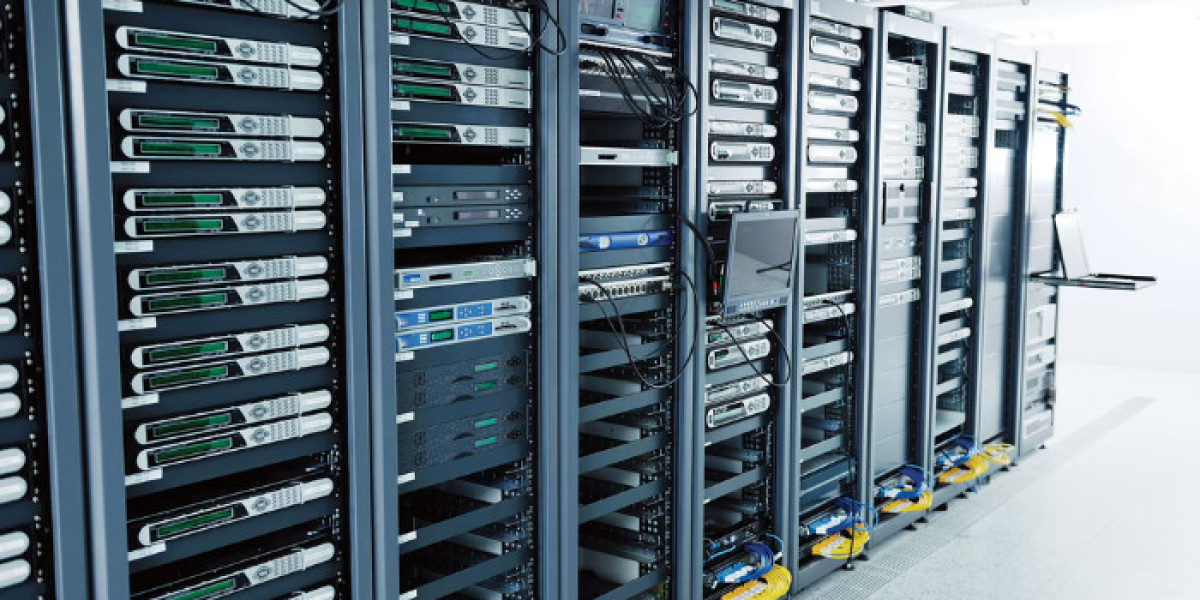However, another essential component quietly plays a pivotal role—memory. Whether you’re running Dell 1U rack mount servers or any other server configuration, without adequate memory, even the most powerful processors can falter. Memory acts as the backbone of your server’s performance, preventing slowdowns and crashes. In this article, we delve into why memory is indispensable for maintaining reliable server operations.
Memory: The Heartbeat of Server Reliability
The Lifeline of Your Server
Memory serves as the lifeline of a server, enabling it to handle multiple tasks simultaneously. Whether you’re managing a small business website or overseeing a vast cloud infrastructure, memory ensures smooth operations. But not all memory is created equal; the type and capacity of memory are crucial for optimal performance.
The Power of ECC Memory
Error-Correcting Code memory stands out as a vital component for reliable performance. ECC memory automatically detects and corrects data corruption issues, ensuring your server runs smoothly. This feature is especially important in environments where data integrity and uptime are critical.
Understanding Memory Capacity and Its Impact
Managing Multiple Applications
Servers often run numerous applications and processes at the same time. Insufficient memory forces the server to use the hard drive as virtual memory, which is significantly slower. This reliance can create bottlenecks, causing performance to degrade sharply.
Benefits of Increased Memory
With more memory, servers can handle demanding workloads like databases or virtual machines effortlessly. Modern servers, such as Dell 1U models, are designed to maximize both space and performance. By equipping these servers with ample memory, you ensure they maintain high reliability and speed, even in compact environments.
Memory’s Role in Maintaining Uptime
Preventing Downtime
Uptime is crucial for server reliability. When servers crash or slow down, businesses can suffer financial losses and damage to their reputation. Adequate memory helps prevent such issues by minimizing the chances of system slowdowns or crashes.
Optimizing Memory Usage
Optimizing your server’s memory involves ensuring enough RAM is available to store data, reducing dependence on slower storage devices like hard drives. This optimization leads to smoother operations and fewer errors, thereby enhancing overall system stability and scalability.
Virtualization: Demanding More Memory
The Rise of Virtual Machines
Server virtualization allows a single server to run multiple virtual machines (VMs) simultaneously, each with its own applications and operating systems. While this approach is resource-efficient, it places significant demands on the server’s memory.
Memory Requirements for Virtualization
Each VM requires a dedicated portion of memory. Without sufficient memory, performance can quickly decline as the server struggles to keep up with the demands of multiple VMs. Therefore, having ample memory is essential for maintaining performance in virtualized environments.
Memory in Data Processing
Handling Heavy Data Tasks
Beyond uptime and virtualization, memory is crucial for tasks that involve heavy data processing. Servers that analyze data, perform complex calculations, or manage large databases rely heavily on memory to function efficiently.
Real-Time Data Processing
For businesses processing thousands of transactions per minute, memory enables the server to retrieve and store data in real-time. This capability reduces delays and ensures a seamless user experience by minimizing the need to access slower storage devices.
Efficient Memory Management
Beyond Quantity: Effective Usage
Having a large amount of memory is beneficial, but how that memory is managed is equally important. Modern servers come equipped with advanced memory management features that optimize task distribution, reduce latency, and enhance overall performance.
Memory Overcommitment
Memory overcommitment allows servers to allocate more memory to virtual machines than is physically available, based on the assumption that not all VMs will use their full allocation simultaneously. This technique improves resource utilization but requires sophisticated memory management to avoid system overloads.
Memory in Cloud and Big Data Applications
Supporting Cloud Computing
In the era of cloud computing, memory plays a vital role in delivering on-demand resources such as storage and processing power. For systems like Dell 1U servers, limited memory can significantly degrade performance, affecting every virtual machine on the server. This can lead to longer wait times, decreased efficiency, and even potential outages. Upgrading memory is essential to ensure smooth operation and optimal performance in a cloud environment.
Enhancing Big Data Applications
Big data applications, including analytics, machine learning, and artificial intelligence, depend heavily on memory to process vast amounts of information efficiently. Sufficient memory ensures that large datasets are handled swiftly, maintaining high performance and responsiveness.
High-Density Environments
Dell 1U servers are prime examples of how memory impacts performance in high-density settings. These compact servers, often used in data centers with limited space, rely on robust memory to meet high computational demands. Upgrading memory in these servers enhances their ability to manage big data tasks effectively.
The Advantages of Memory Upgrades
Cost-Effective Performance Boost
Upgrading memory is one of the most cost-effective ways to enhance server performance. Unlike upgrading CPUs or storage, which can be expensive and time-consuming, adding more memory is relatively straightforward and provides an immediate performance boost.
Eliminating Bottlenecks
Increasing memory capacity helps eliminate bottlenecks, improves response times, and prevents system slowdowns. This upgrade is especially beneficial for businesses operating on a budget, offering a practical solution to enhance server performance without significant investment.
Future-Proofing Your Server
Upgrading memory also future-proofs your server. As your business grows, the demands on your IT infrastructure increase. By expanding your server’s memory now, you ensure it can handle future workloads without frequent downtime or costly hardware replacements.
Memory Performance Metrics
Latency
Latency refers to the delay between a memory request and its fulfillment. Lower latency means faster data access, which is crucial for applications requiring real-time processing.
Bandwidth
Bandwidth measures the amount of data that can be transferred to and from memory per second. Higher bandwidth allows for quicker data movement, enhancing overall server performance.
Error Rates
Monitoring memory error rates is vital for maintaining data integrity. ECC memory helps mitigate these errors, ensuring reliable server operations.
Conclusion
Memory is the lifeblood of reliable server performance. Whether supporting a small website or a complex cloud-based infrastructure, adequate memory ensures efficient and stable operations. From maintaining uptime to handling data processing and virtualization, memory is fundamental in keeping servers fast and dependable. Investing in sufficient memory not only enhances current performance but also prepares your infrastructure for future growth and demands.
FAQs
Q: How Much Memory Do Servers Need for Reliable Performance?
A: The required memory varies based on your applications and workloads. For light tasks, 8-16 GB may suffice, while resource-intensive tasks like databases or virtual machines might need anywhere from 64 GB to several terabytes.
Q: How Can I Tell If My Server Needs a Memory Upgrade?
A: Indicators that your server may need a memory upgrade include frequent slowdowns, crashes, or excessive use of swap space. Monitoring these symptoms can help determine if additional memory is necessary.
Q: Can I Upgrade Memory on Dell 1U Servers?
A: Yes, Dell 1U servers are designed for scalability, including memory upgrades. Adding more memory to these servers can significantly enhance their performance and reliability.
Q: What Role Does Memory Play in Virtualization?
A: Memory is critical in virtualization because each virtual machine requires its own memory allocation. More memory allows servers to support a greater number of VMs without experiencing performance degradation.








